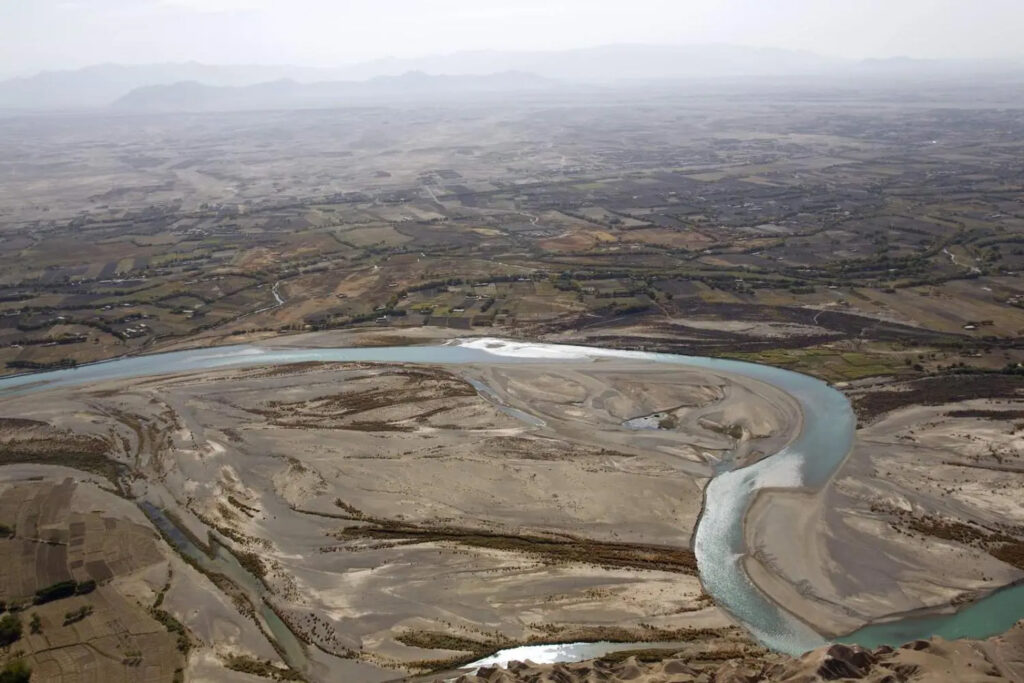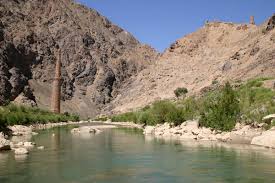Afghanistan’s Dam Projects on Harirud and Helmand Rivers Spark Diplomatic Clashes with Iran, Amid Historical Water Sharing Disputes
Iran and Afghanistan, two countries governed by clerics and sharing a 900-kilometer-long border, are once again at odds over water rights. The primary point of tension is the flow of river waters downstream to Iran, a longstanding issue rooted in historical disputes.
Afghanistan is constructing a dam on the Harirud River, which Iran views as a violation of customary water-sharing rights and a unilateral exploitation of the river. Issa Bozorgzadeh, Iran’s water industry spokesperson, stated last month that this action would severely impact the drinking water supply and health of millions in downstream regions, causing widespread environmental damage. However, the Afghan government disagrees with Iran’s position. This week, it issued a warning against Tehran’s “irresponsible comments” following criticism of the upstream dam project.
On Friday, Esmaeil Baqaei, Iran’s foreign ministry spokesman, expressed strong protest over the “disproportionate restriction” of water entering Iran due to the Pashdan Dam on the Harirud River, suggesting that the project might breach bilateral treaties. Meanwhile, Afghanistan’s Taliban government maintains that the water-sharing dispute between the two nations has been resolved through mutual understanding, though it cautioned that inflammatory rhetoric could harm bilateral relations.
The Pashdan Dam, located in Herat province, is nearing completion, with water storage having already commenced. The dam, which began construction in 2011, is expected to store 54 million cubic meters of water, irrigate 13,000 hectares of land, and generate 2 megawatts of electricity. While Afghan authorities assert that the dam is vital for Herat’s development, Iran claims that it reduces the natural flow of the Harirud River, potentially harming the drinking water supply of Mashhad, a major Iranian city. Bozorgzadeh emphasized the shared destiny of people living in the Harirud basin and called for joint negotiations to mitigate the cross-border impacts of the Pashdan and Salma dams.
In addition to the Harirud dispute, the two countries have clashed over water rights to the Helmand River. In May 2023, Iran warned Afghanistan about the potential violation of its rights due to new dam projects on the Helmand. Historically, disputes over the river date back to the 1870s, escalating after the river’s course changed in 1896. Although a 1939 accord between the two nations proposed sharing water rights, it was never ratified. A 1973 treaty stipulated that Iran should receive 820 million cubic meters of water annually from the Helmand River, but Afghanistan’s changing political landscape, including the 1979 Saur Revolution and Iran’s 1979 Islamic Revolution, disrupted negotiations.
During Ashraf Ghani’s presidency, Afghanistan began constructing several dams, such as the Salma and Kamal Khan Dams, leading to heightened tensions with Iran. The Taliban, which took control of Afghanistan in 2021, has also engaged in discussions with Iran about water-sharing arrangements, with President Ebrahim Raisi warning the Taliban in May 2023 not to infringe upon Iran’s rights to the Helmand River’s waters and urging them to honor the 1973 treaty. The Helmand River, which flows through Afghanistan into Iran, is essential for both countries. It provides irrigation for Afghan farmers and is vital for agriculture in Iran’s drought-prone Sistan-Baluchistan province. Despite the construction of dams on Afghan tributaries, such as the Kajaki and Arghandab Dams, the Helmand remains crucial for both nations’ agricultural economies. – KARACHI: ERMD


